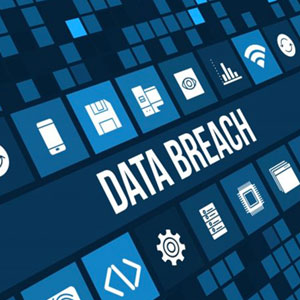
Data breaches can be prevented with proper measures in place, but if they are lacking in any way, you can be and probably will be hacked at some point in time or another. However, if multibillion-dollar companies like Yahoo, eBay and Equifax can be breached and blackmailed, rest assured that no one is completely immune to cyber threats. It is therefore wise to have a strategy in place for just such an occurrence, so that you can take quick and evasive actions to minimize the damages. Here is a quick guide showing you how to deal with a data breach.
Halt the Breach as Soon as You can
Halt the breach by unplugging all connected systems and computers from the internet as soon as you are notified. If you have to unplug a whole department or isolate an entire office for the time being, so be it.
Eliminate the Problem and Plug the Security Gaps
This is why you need IT officials with cybersecurity training in the company, so call them up immediately so that they can identify, eliminate and plug the vulnerability, immediately after disconnecting everything from the internet.
If you do not have sufficiently qualified IT professionals working for you, hire someone from the outside, because white hat hackers do often freelance.
Call the Digital Forensics Team
Services like Secure Forensics will offer corporate digital forensics services to businesses that have suffered a breach. The experts at Secure Forensics will inspect everything from smartphones, computers and servers, right up to cloud storages to find everything they need to.
A digital forensics team will help you identify the problem, the security gaps through which the malware managed to get through, as well as finding any responsible employees or external elements, if present. In addition, their report can be crucial in case you are sued and also when you claim insurance.
Implementation of Preventive Measures and Assessment of Damage
The very next step after the digital forensics team has done their job would be to decide on immediate preventive measures, with their help. It isn’t uncommon for hackers to attack the same company right after they have been breached, so those preventive measures need to be taken as soon as possible.
Assessment of the damages comes next, which is never an easy task. If you are ever unfortunate enough to be breached, it is likely that you will end up losing a lot of money and reputation, whether you paid for ransomware or not. How much damage you suffered will, however, depend on how fast the security team was able to react to the breach.
In the long term, you should think about the following as well:
- Employee training and awareness programs to fight against cyberthreats
- Passwords are outdated, so a two-factor authorization should be mandatory (password + OTP via SMS)
- Limited access to sensitive data makes it easy to avoid breaches and detect inside jobs efficiently
- Regular patching of all software systems should be mandatory as well
Never consider your company to be too small to be in a hacker’s crosshairs, because nearly 60% of the successful malware attack victims included small businesses last year, because they thought just that! Take preventive measures beforehand, but also keep a response protocol ready in case of a security breach.



